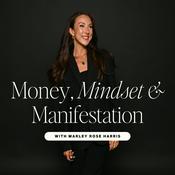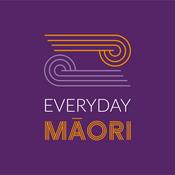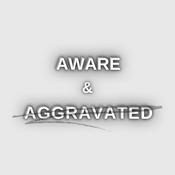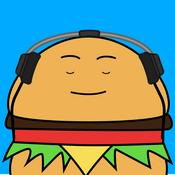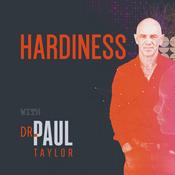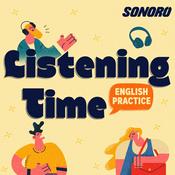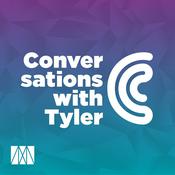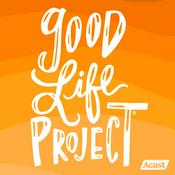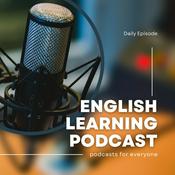134 episodes

Next Level Technique: 3 Myths You Need to Bust - PHH 244
12/1/2026 | 32 mins.
If you heard last week's podcast, you may remember that this month's podcast episodes are all about growth, your growth as a harpist and the systems and skills that are necessary for that growth. Last week, we talked about three key systems that you need to have in place for growth. This week is all about technique. I know it may sound like a dry as dust topic to some of you. Harpists generally fall into two distinct camps: those who hate doing technique exercises and those who love them. So if you love your Grossi and LaRiviere or whatever exercise book you use, this podcast is going to be right up your alley. We'll dive into how you can use what you're doing now to get to that next level of technical proficiency. If you're in the other camp, one of those who feels like exercises are torture when all you want to do is play pretty pieces, I hear you. I'm talking to you as a convert. Granted it was many years ago when I finally realized that exercises weren't just for solving problems, that they were more like the gas in my harp-playing engine. I totally understand just wanting to play music. What I want you to get from today's podcast episode is that a consistent plan for strengthening your technique will take your playing further faster than just about anything else. And this plan doesn't have to be all exercises either. We're all about harp happiness here, and that includes when you're practicing your technique. Links to things I think you might be interested in that were mentioned in the podcast episode: Register for The Harpist's Breakthrough Blueprint Intensive Podcast episode #243: Architect Your Harp Playing Growth with 3 Key Systems Harpmastery.com Get involved in the show! Send your questions and suggestions for future podcast episodes to me at [email protected] Looking for a transcript for this episode? Did you know that if you subscribe to this podcast on Apple Podcasts you will have access to their transcripts of each episode? LINKS NOT WORKING FOR YOU? FInd all the show resources here: https://www.harpmastery.com/blog/Episode-244

Architect Your Harp Playing Growth with 3 Key Systems - PHH 243
05/1/2026 | 32 mins.
A system is comfort. When we have and follow a system, whether it's for completing tasks, or crafting, or making a grocery list, our mind can be at ease. Why? Because we know we have the steps to complete our task, and all we have to do is to follow the steps and the task will be done. When it comes to harp playing, people frequently make one of two mistakes. One is thinking that harp playing is inherently creative, and therefore a system is not only unnecessary, but it will rob your music of its soul. The other is trying to systematize everything about your playing in an attempt to get consistent results or make consistent progress. If you heard last week's podcast, you know that the word "progress" is one of the words I'm trying to steer clear of this year, but it is one I am going to find hard to avoid. What's interesting, though, is that systematization is one of the "progress" traps. Progress, meaning in this case growth either overall growth or integration of a single piece of music, defeats every attempt we make to predict it. But that doesn't mean that systems are useless for us; in fact, it points out how much we need systems. We just need the right ones. So today I'm going to give you a systems roadmap, three systems that can predict your growth. I know these systems are powerful, and I hope that today's show will convince you to look at how you do what you do with your harp playing, and give you some quick and easy ways you can make an upgrade. Links to things I think you might be interested in that were mentioned in the podcast episode: Still some spots left at the Getaway Retreat. Register today! Related resource 5 Steps to Expand Your Vision and Achieve Your Goals blog post Harpmastery.com LINKS NOT WORKING FOR YOU? FInd all the show resources here: https://www.harpmastery.com/blog/Episode-040 Get involved in the show! Send your questions and suggestions for future podcast episodes to me at [email protected] Looking for a transcript for this episode? Did you know that if you subscribe to this podcast on Apple Podcasts you will have access to their transcripts of each episode? LINKS NOT WORKING FOR YOU? FInd all the show resources here: https://www.harpmastery.com/blog/Episode-243

My New Vocabulary for 2026 - PHH 242
29/12/2025 | 34 mins.
For me, and I think for many people, this last week of the year is a supremely hopeful one. The rush to get ready for Christmas is behind us and the promise of a new year is finally in focus. We're faced with possibilities for a change, instead of pressure. I realize, of course, that for many of us those possibilities for the new year include uncertainty, worry and fear which are beyond any assistance I could give on this podcast. I can merely offer prayers that the universe grants us all the courage and resources we need to face the circumstances before us. And I will stick to what I know best, how to help you find more meaning, joy and fulfillment in your harp playing, It has become a fairly wide-spread practice at the beginning of the year to choose a word or a phrase to be your touchpoint throughout the year, to inspire you, motivate you and keep you focused. As I was thinking through my word for 2026, I realized that many of the words I have been using frequently in my teaching and in my own practice are words that carry too much weight. They have a charge, a negative charge like a negative ion. Some of those words didn't start out that way in my vocabulary. In fact, more than one of them I intentionally chose to use to reduce the negative connotation of another word. Still, it's the right time to rethink them. Words shape our thinking. They can create boxes that limit us, that hold us back from achieving what we want in any area of life, including our harp playing. Or they can free us to love what we do and to find new energy for doing it. I'll tell you my word - it's actually two words - for 2026, but before I do that I want to share the words that I am rethinking for the coming year. My goal is to be more mindful of my language in my teaching, and that includes my teaching you on this podcast. These are words I use all the time so it will be an adventure for me, for sure, but if my 2026 vocabulary words help you reduce any negative charge that is impacting your harp playing, it will have been more than worth the effort. Links to things I think you might be interested in that were mentioned in the podcast episode: Time is running out to join us at the Getaway Retreat. Register today. Make your harp dreams come true this year - work with a Harp Mastery® Certified Coach. Harpmastery.com Get involved in the show! Send your questions and suggestions for future podcast episodes to me at [email protected] Looking for a transcript for this episode? Did you know that if you subscribe to this podcast on Apple Podcasts you will have access to their transcripts of each episode? LINKS NOT WORKING FOR YOU? FInd all the show resources here: https://www.harpmastery.com/blog/Episode-242

Classics for a Relaxing Holiday - PHH 240
22/12/2025 | 31 mins.
It's Christmas week, and for me, this is a week to finally settle into the holiday mood. This is the time we decorate our tree, get in touch with friends and family, and start reveling in the spirit of joy and peace that feels so elusive other times of the year. So this is not the week I want to dive into a heavy teaching topic here on the podcast. What I want to do today is spread a little holiday harp happiness with a short musical program for you to enjoy. The theme of the program is "Classics for a Relaxing Holiday," classical music that is appropriate for the holidays, but isn't specific to this time of year. In other words, no jingling bells or Santa Claus songs - just calm, perhaps even meditative harp music, assembled from my various recordings and videos. I've listed the program in the show notes, and for some of the pieces, you'll also find links to sheet music arrangements in our Harp Mastery® shop. I've also included spoken introductions to each piece to give you a little of the background to the piece or what I love about it. But I realize you might want to make this music part of the background to your holidays without the narration, so in the show notes I have put links to alternate ways to download or listen to the music. One is a bonus podcast episode that has only the music, without the speaking. The other is a link to the music on YouTube where I've added some harp photographs that I have taken on my recent travels. PROGRAM: all arrangements by Anne Sullivan Largo, from Winter by Vivaldi from Break Forth CD Two from Messiah by Handel LINK TO SHEET MUSIC Mozart in a Minute LINK TO SHEET MUSIC Ave Maria by Schubert from Break Forth CD Jesu, Joy of Man's Desiring (Bach)/Ode to Joy (Beethoven) LINK TO SHEET MUSIC Peace, a Fantasy on Dona Nobis Pacem LINK TO SHEET MUSIC Links to things I think you might be interested in that were mentioned in the podcast episode: Download the playlist to your device. Listen to the playlist on YouTube Harpmastery.com Get involved in the show! Send your questions and suggestions for future podcast episodes to me at [email protected] Looking for a transcript for this episode? Did you know that if you subscribe to this podcast on Apple Podcasts you will have access to their transcripts of each episode? LINKS NOT WORKING FOR YOU? FInd all the show resources here: https://www.harpmastery.com/blog/Episode-240

Classics for a Relaxing Holiday Playlist
22/12/2025 | 20 mins.
Playlist Program: All selections performed by Anne Sullivan All selections arranged for harp by Anne Sullivan Largo, from Winter by Vivaldi from Break Forth CD Two from Messiah by Handel LINK TO SHEET MUSIC Mozart in a Minute LINK TO SHEET MUSIC Ave Maria by Schubert from Break Forth CD Jesu, Joy of Man's Desiring (Bach)/Ode to Joy (Beethoven) LINK TO SHEET MUSIC Peace, a Fantasy on Dona Nobis Pacem LINK TO SHEET MUSIC
More Education podcasts
Trending Education podcasts
About Practicing Harp Happiness
Listen to Practicing Harp Happiness, Begin Again with Davina McCall and many other podcasts from around the world with the radio.net app
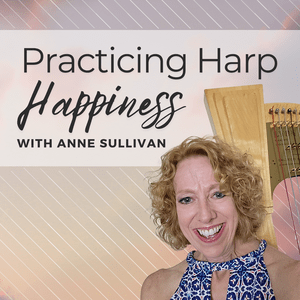
Get the free radio.net app
- Stations and podcasts to bookmark
- Stream via Wi-Fi or Bluetooth
- Supports Carplay & Android Auto
- Many other app features
Get the free radio.net app
- Stations and podcasts to bookmark
- Stream via Wi-Fi or Bluetooth
- Supports Carplay & Android Auto
- Many other app features


Practicing Harp Happiness
download the app,
start listening.


